Six similar bulbs are connected as shown in the figure with a DC source of emf E, and zero intermal resistance.
The ratio of power consumption by the bulbs when (i) all are glowing and (ii) in the situation when two from section A and one from section B are glowing, will be:
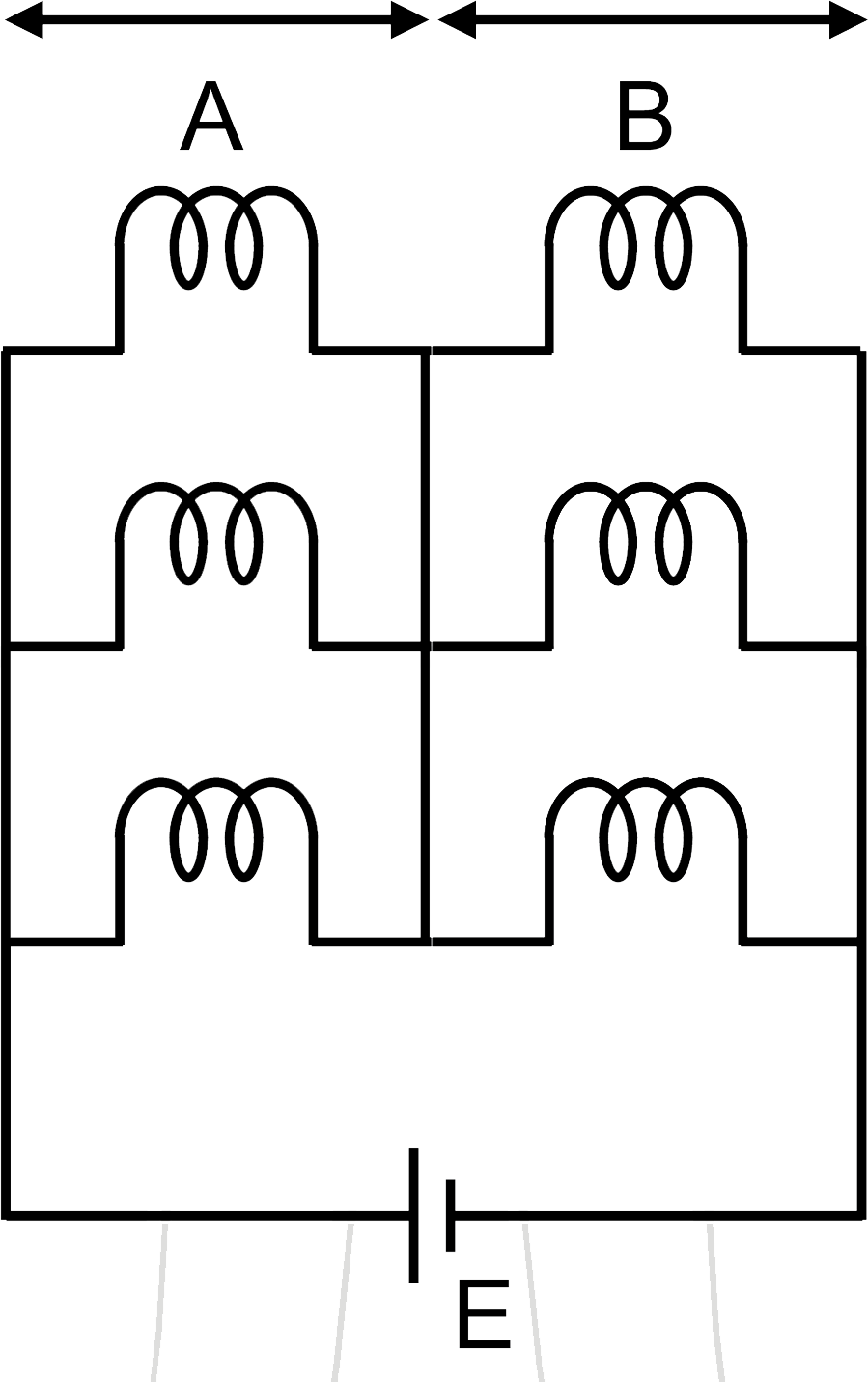
4:9
9:4
1:2
2:1
The correct Answer is:B
Case I: All bulbs are glowing 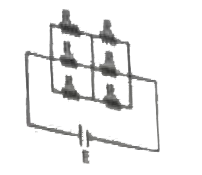
Req=R3+R3=2R3
Case II: Two from section A and one from section
B are glowing.
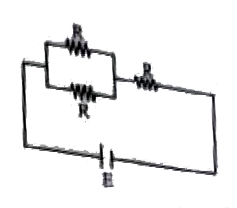
Req=R2+R=3R2
Here P∝1Req
∴PiPr3R/22R/3=94
Topper's Solved these Questions
- BOOK - PHYSICS WALLAHCHAPTER - CURRENT ELECTRICITYEXERCISE - Level-230videos
CURRENT ELECTRICITY
- BOOK - PHYSICS WALLAHCHAPTER - ALTERNATING CURRENT EXERCISE - NEET PAST 5 YEARS QUESTIONS8videos
ALTERNATING CURRENT
- BOOK - PHYSICS WALLAHCHAPTER - DUAL NATURE OF RADIATION AND MATTEREXERCISE - Neet past 5 years questions16videos
DUAL NATURE OF RADIATION AND MATTER
Similar Questions
Three identical bulb are connected as shown in figure . When switch S is closed, the power consumed in bulb B is P . What will be the power consumed by the same bulb when switch S is opened ?
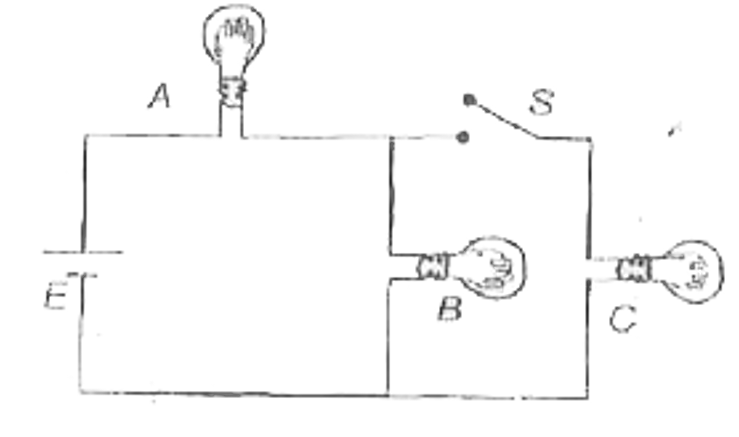 View Solution
View SolutionTwo identical bulbs A and B are connected in series across a source of emf E. now, bulb B is removed from the circuit. Compare the brightness of bulb A in both arrangements .
View Solution
Knowledge Check
- Question 1 - Select One
Two electric bulbs rated 50 W and 100 W are glowing at full powr, when used in parallel with a battery of emf 120 V and internal resistance 10 Ω. The maximum number of bulbs that can be connected in the circuit when glowing at full power, is
A6B4C2D8 - Question 2 - Select One
Two identical incandescent light bulbs are connected as shown in figure. When the circuit is an AC voltage source of frequency f, which of the following observations will be correct.
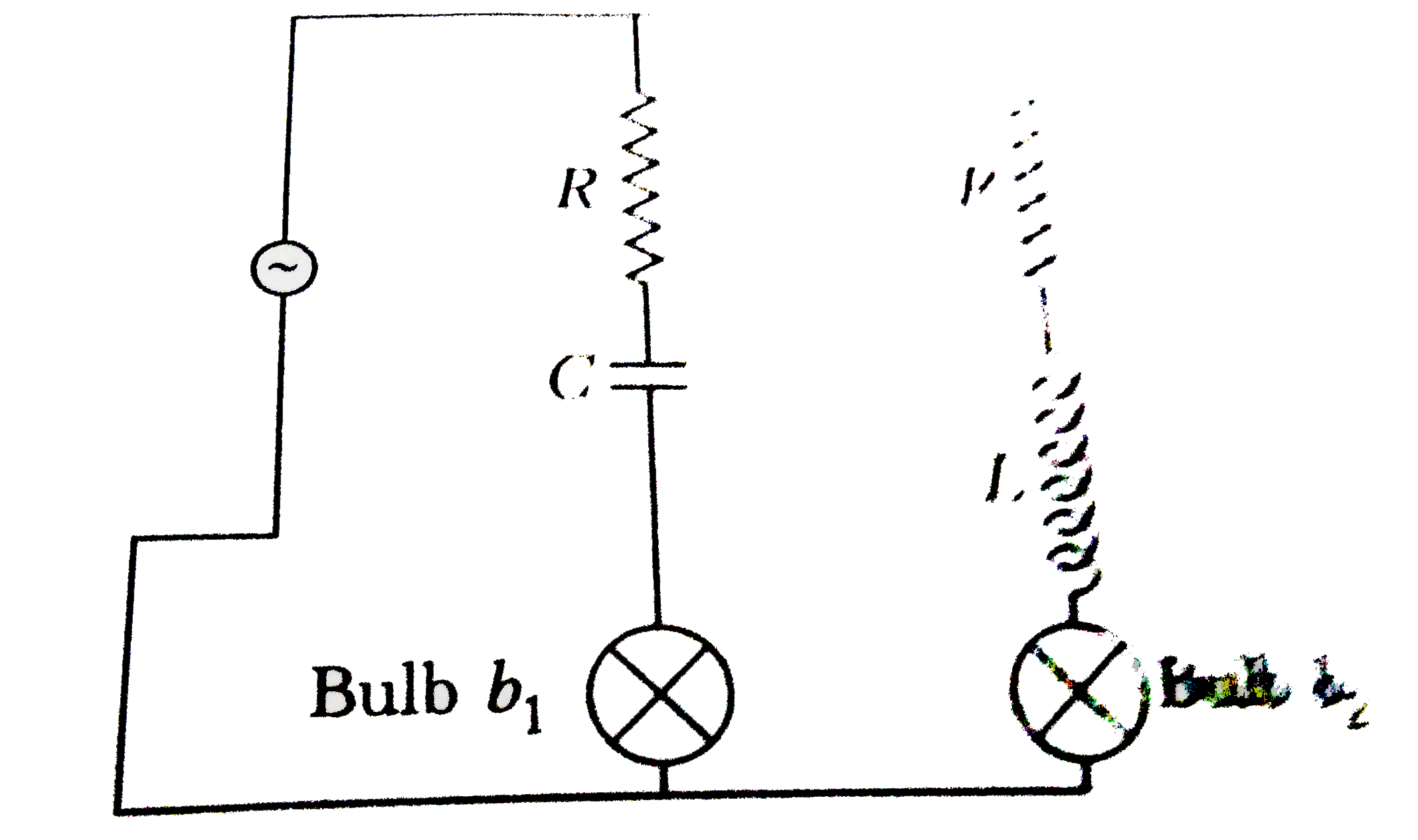 ABoth bulbs will glow alternativelyBBoth bulbs will glow with same brightness provided f = 1/2π √1LCCBulb b1 will light up initially and goes OFF, bulb b2 will be ON constantlyDBulb b1 will blink and bulb b2 will be ON constantly
ABoth bulbs will glow alternativelyBBoth bulbs will glow with same brightness provided f = 1/2π √1LCCBulb b1 will light up initially and goes OFF, bulb b2 will be ON constantlyDBulb b1 will blink and bulb b2 will be ON constantly
In a experiment , N identical electrical bulbs, each having resistance R , are connecteed in parallel to a dc source of emf E and internalresistance r . What is the power consumed by each bulb . Also find the percentage change in power by each bulb if one bulb turns out.
View SolutionThe resistances of 20Ω are connected to a source of emf. Calculated the ratio of the heats produced in the two resistances when they are connected (i) In series and (ii) in parallel.
View SolutionThe resistances of 20Ω are connected to a source of emf. Calculated the ratio of the heats produced in the two resistances when they are connected (i) In series and (ii) in parallel.
View Solution(i) State the two Kirchhoff's laws. Explain briefly how these rules are justified.
(ii) The current is drawn from a cell of emf E and internal resistance r connected to the network of resistors each of resistance r as shown in the Fig. Obtain the expression for (a) the current draw from the cell and (b) the power consumed in the network.
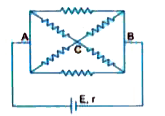 View Solution
View SolutionA torch bulb when cold has 1Ω resistance. It draws a current of 0.3A when glowing from a source of 3V. Calculate the resistance of the bulb when glowing and explain the reason for the difference in resistance.
View SolutionThe current is drawn from a cell of emf E and iternal resitance r connected to the network of resistors each of resistor r as shown in the figure. Obtain the expression for (i) the current draw from the cell and (ii) the power consumed in the network.
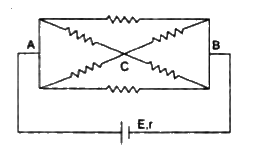 View Solution
View Solution

